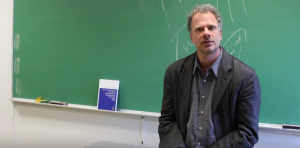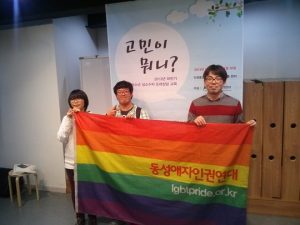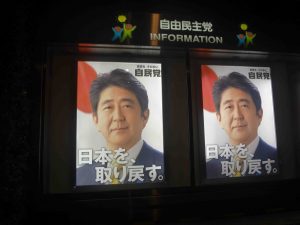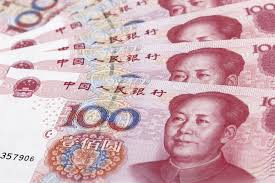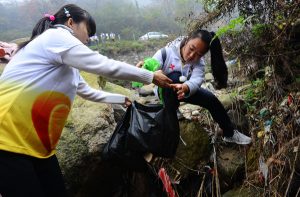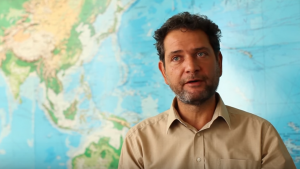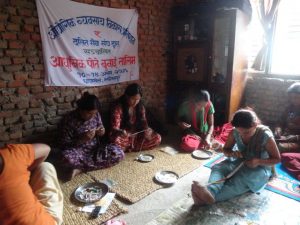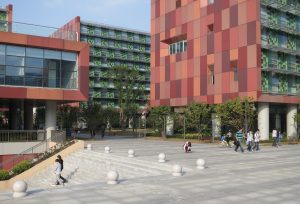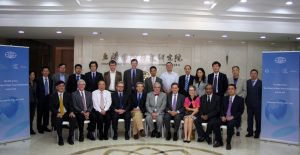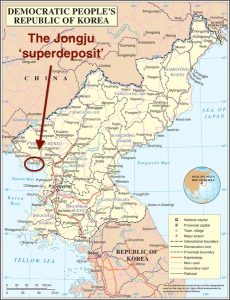The Global Intensification of Supplementary Education
Memo #271 Featuring Julian Dierkes Recently, Ee-Seul Yoon of the Faculty of Education at UBC in coordination with the Asia Pacific Memo sat down with Dr. Julian Dierkes, Associate Professor and Keidanren Chair in Japanese Research at UBC’s Institute for Asian Research, to pose a few questions about Professor Dierkes’ recently co-edited volume, Out of the Shadows: The Global […]
To Be Queer and Christian: Organizing for Queer Youth in Korea
Memo #270 By Joseph Yi – joyichicago [at] yahoo.com & Daniel Payne – koreanrainbow [at] gmail.com South Korea has among the highest rates of suicide among developed (OECD) countries, peaking at 28.4 per 100,000 people in 2011. Hidden among these tragedies are LGBTQ (Lesbian, Gay, Bisexual, Transgender, Queer), whose sexuality is often rejected by Korean […]
Against Abe: Listening for Oppositional Voices within Japan
Memo #268 By Hyung-Gu Lynn – hlynn [at] mail.ubc.ca The poster beside the headquarters of the ruling Liberal Democratic Party (LDP) in Tokyo features a photograph of Prime Minister Abe Shinzō, adorned with the slogan “Take back Japan!” Most English-language media accounts and op-eds create the impression that all of Japan is enthusiastic in its […]
Redback Rising: Canada’s Role in the Internationalization of the Renminbi
Memo #267 By Grégoire Legault – gregoire.legault [at] alumni.ubc.ca The Chinese renminbi, or “people’s currency” (人民币), has been internationalizing more rapidly than experts had previously forecast, even though the country’s capital account remains closed and the currency’s exchange rate is still not allowed to float freely. The redback is crossing national borders at a transitional stage in […]
The Rise of Volunteering in China: Transforming Cities and Personhood
Memo #266 By Lisa Hoffman – hoffmanl [at] uw.edu Indicative of an increased attention to volunteerism as a tool for cities and communities across the globe, in 2011 the United Nations issued its first State of the World’s Volunteerism Report, subtitled “Universal Values for Global Wellbeing.” Young people in particular have been encouraged by agencies […]
Professor Halkias Talks Pure Land in Tibetan Buddhism
Memo #263 Featuring Georgios T. Halkias A few months ago the Asia Pacific Memo sat down with Dr. Georgios T. Halkias a noted scholar of Pure Land Buddhism, particularly of the Himalayan region, and the author of Luminous Bliss, A Religious History of Pure Land Literature in Tibet (University of Hawai‘i Press, 2012). He was a […]
NGO Funding and Overhead Costs: Fallacies and Misconceptions
Memo #262 By Xue-Rong Jia – xue-rong.jia [at] alumni.ubc.ca Almost every international non-governmental organizations (INGO) releases an annual report summarizing its activities and achievements for the year, including a breakdown of its revenues and expenses. For example, last year Save the Children spent 3.8 percent of its revenues for administrative purposes, 9 percent in fundraising […]
NYU Shanghai and the Future of International Higher Education in China
Memo #261 By Joel Heng Hartse – joelhartse [at] gmail.com New York University Shanghai recently completed its first semester of operations. Though NYU Shanghai was recently touted by National Public Radio as the first Sino-U.S. joint university, there are in fact hundreds of approved joint-degree programs and more than thirty jointly run Sino-foreign universities operating in China—and the […]
Fragmentation vs. Integration in Asia in 2014: A Year for the History Books
Memo #259 By Yves Tiberghien – yves.tiberghien [at] ubc.ca In the wake of major leadership change around East Asia, what will be the major trends in the Asia/Pacific region in 2014? Did the battle over the Chinese Air Defense Identification Zone (ADIZ) and the provocative visit to Yasukuni Temple by Prime Minister Abe on December […]
A Strategic Discovery: Rare Earth Elements Bonanza in the DPRK
Memo #258 By Marie-Pier Baril – mariepier.baril [at] gmail.com Earlier this month, MiningWeekly announced the world’s largest known single reserve of rare earth elements (REE) was discovered in Jongju, North Pyongan province, Democratic People’s Republic of Korea (DPRK, or North Korea). The DPRK’s mineral resources have always been substantial, but the discovery of such rare […]
